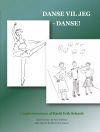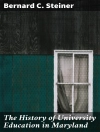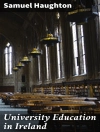In ’Colleges in America, ’ John Marshall Barker delivers a comprehensive examination of the evolution of higher education in the United States, dissecting the socio-political and cultural forces that have shaped American colleges from their inception to the modern era. Barker employs a meticulously analytical style, intertwining historical narrative with critical insights on educational policies, demographic shifts, and evolving pedagogical philosophies. His work situates itself within a tradition of educational scholarship while addressing contemporary dilemmas faced by institutions, making this book both a scholarly resource and a relevant commentary on the current state of American education. John Marshall Barker is a historian and educational reform advocate who has dedicated his career to exploring the dynamics of American education. His extensive background in sociology and educational policy has informed his passion for understanding the interplay between education and societal change. Drawing on a wealth of academic research and personal experience, Barker presents a nuanced perspective that reflects both historical rigor and modern relevance, valuable for educators, policymakers, and students alike. This book is a must-read for anyone interested in the impact of educational institutions on American society. Whether you are an educator, a historian, or simply a curious reader, ’Colleges in America’ offers enlightening insights into the formative role that colleges play in cultural development and economic progress, illuminating the path forward for future generations.
Om författaren
John Marshall Barker, an erudite scholar and dedicated educator, has made significant contributions to the landscape of American higher education. While specifics about Barker’s personal history and academic credentials are scant, his seminal work ’Colleges in America’ stands as a testament to his deep understanding of the intricacies and history of colleges in the United States. In this well-received volume, Barker offers insightful analysis and a critical examination of the policies, practices, and cultural contexts that have shaped American institutions of higher learning. His literary style, characterized by a meticulous approach and a clear, authoritative voice, suggests a background steeped in academia and a life devoted to the study and improvement of the educational system. Barker’s scholarship likely stems from a longstanding commitment to both educating future generations and advocating for the evolution of college education to meet modern needs. Though ’Colleges in America’ may be his most notable publication, one can infer that his overall body of work continues to influence students, educators, and policy-makers. His lack of a wide-reaching public profile may hint at a preference for privacy and a dedication to his craft over personal publicity—a choice that accentuates the significance of his contributions to educational literature.












